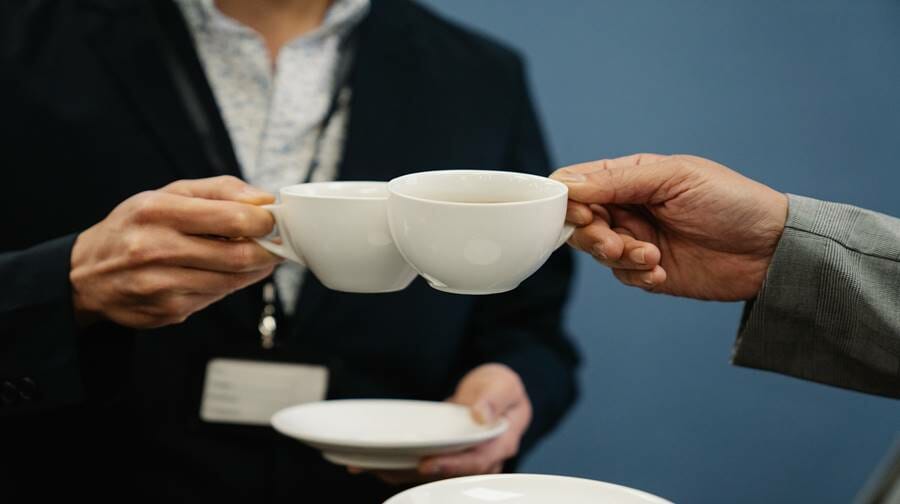There is nothing to prove about the numerous benefits of coffee. The drink is an excellent source of antioxidants and helps prevent heart and liver diseases. So, coffee is not only famous for its taste but also for its health advantages.
Since our childhood, we are used to drinking brewed coffee. But, you may wonder if you can eat coffee beans like other seeds.
Do coffee beans give you energy? Thousands of coffee enthusiasts like you ask this question because they want to know its effect.
In short, you can eat coffee beans, which will boost your energy.
Keep reading to learn more.
Does Eating Coffee Beans Provide you Energy?

Eating coffee beans will speed up your caffeine absorption than drinking coffee. The faster effect of caffeine in your body quickly restrains the adenosine hormone, which is responsible for tiredness and sleepiness. That’s why you feel energetic almost immediately.
Instead of drinking coffee, eating coffee beans is also a natural way of consuming caffeine. Chewing coffee beans will provide the same benefits as drinking brewed coffee.
It will help prevent chronic diseases such as diabetes, high blood pressure, depression, cancer, etc. In addition, coffee beans will boost your metabolism, which is essential for better weight loss. So, you should keep some roasted coffee at hand for chewing.
However, you may also experience some adverse effects when overeating coffee beans, such as sleep deprivation and gastrological problems. We will discuss them later.
Is It Safe to Eat Coffee Beans?

You already know the answer if you have tried chocolate-covered roasted coffee beans. There is nothing wrong with eating coffee beans. Many people consume them regularly and get physical benefits such as reducing the risk of type 2 diabetes.
Eating coffee beans is nothing new. In the past, people mixed coffee beans and animal fat and ate them to increase physical strength. Research from the American Chemical Society shows that consuming coffee beans can assist in weight loss.
Don’t you want to drink brewed coffee for any reason? You can eat coffee beans instead and get all their essential antioxidants.
How Many Coffee Beans Can You Eat a Day?
It depends on the type of coffee beans. For instance, let’s talk about two common and popular coffee beans, Arabica and Robusta.
An Arabica coffee bean contains about 12 mg of caffeine. On the other hand, a Robusta coffee bean has 22 mg of caffeine approximately.
According to the US Food and Drug Administration, a healthy adult can safely take up to 400 mg of caffeine daily. Going beyond this recommended limit can cause many physical complications.
Based on the safe caffeine intake limit, you can eat 33 Arabica coffee beans every day. In the case of Robusta, you can eat 18 coffee beans per day.
The consumption limit is also applicable to chocolate-covered coffee beans.
Can You Eat Raw Coffee Beans?
Yes, you can because raw coffee beans are edible similar to roasted coffee. They are even richer in nutrients and antioxidants than roasted beans. But, they have a pungent taste which can cause heartburn and stomach upsets.
You may also not like the taste since they are very acidic and bitter. The density of raw coffee beans also makes it difficult to chew. So, consuming raw coffee beans may not be suitable for most people.
Benefits Of Eating Coffee Beans
Chewing both raw and roasted coffee beans is very healthy. Let’s check out some physical benefits of eating whole coffee beans:
- Eating coffee beans allows you to consume caffeine without processing and additives like brewed coffee. Caffeine is an essential and helpful substance for our brain and central nervous system.
- Coffee beans are richer in intact antioxidants. Research has shown that coffee beans provide more chlorogenic acid than brewed coffee, which fights against diabetes and inflammation.
- Chewing coffee beans help prevent chronic diseases such as – depression, Alzheimer’s, and Parkinson’s.
- Studies have found that green coffee beans effectively reduce blood pressure.
- Eating coffee beans can also assist in curing liver diseases.
Risks Of Eating Coffee Beans
Chewing coffee beans may not be suitable for all. You may experience some physical complications like the following after consuming whole coffee beans:
- Eating coffee beans can cause heartburn, stomach upset, nausea, diarrhea, and bloating.
- Direct and quick caffeine absorption brings about sleep disturbance.
- Anxiety, stress, headaches, and poor concentration are common side effects of eating coffee beans.
- Coffee beans can keep you energized for longer, which leads to a loss of appetite.
- They can also affect your sense of taste temporarily.
- Eating coffee beans more than the recommended amount can increase your cholesterol and LDL levels.
Excess energy is a notable cause of hyperactivity. Through our discussion, you know that coffee gives you energy. Coffee enthusiasts might be curious to know – does eating coffee beans make you hyperactive?
In short, coffee beans do not make you hyperactive. Instead, it keeps you alert and focused. Chewing a few coffee beans will help you to stay attentive longer. However, coffee beans have no relationship with hyperactivity. If you are suffering from this issue, you should meet a doctor.
Final Words
So, do coffee beans give you energy? This article should provide its answer in detail. Eating coffee beans will give you energy and mental freshness. It is an excellent alternative to caffeine consumption if you don’t want to drink brewed coffee.
Coffee is not an ordinary beverage. Instead, it works as a natural drug that prevents many diseases. Coffee beans are safer to eat if consumed in moderation.
Many recipes exist worldwide where whole coffee beans are used to decorate and increase the taste. Besides, coffee beans are widely used in herbal medicines.
Eating coffee beans can cause some uncomfortable side effects. However, experts still encourage eating them for several health advantages.
References:
https://www.healthline.com/nutrition/top-evidence-based-health-benefits-of-coffee
https://food.ndtv.com/food-drinks/does-coffee-really-give-you-energy-1814514
https://www.hsph.harvard.edu/nutritionsource/caffeine/